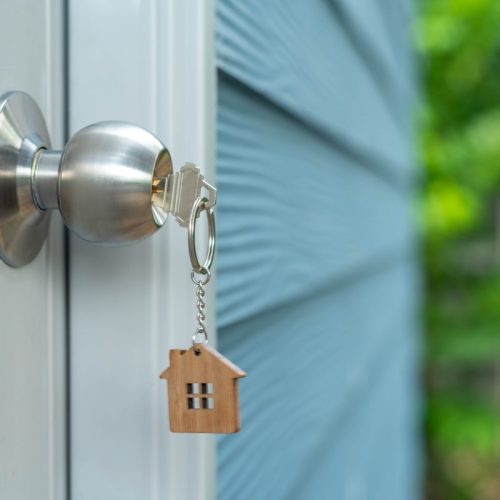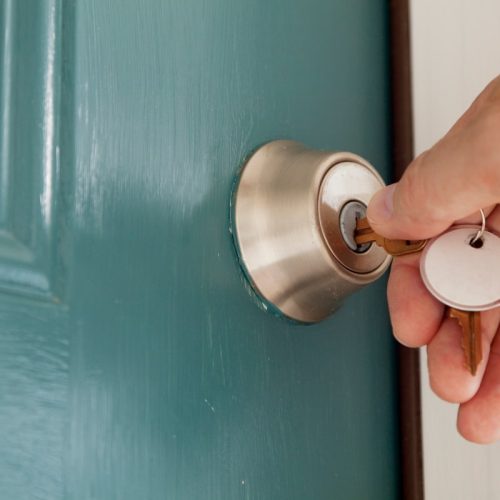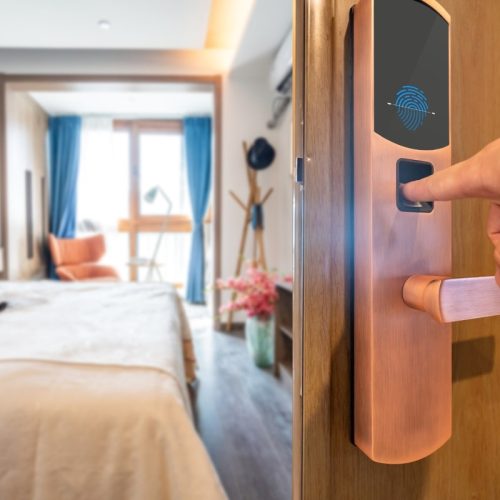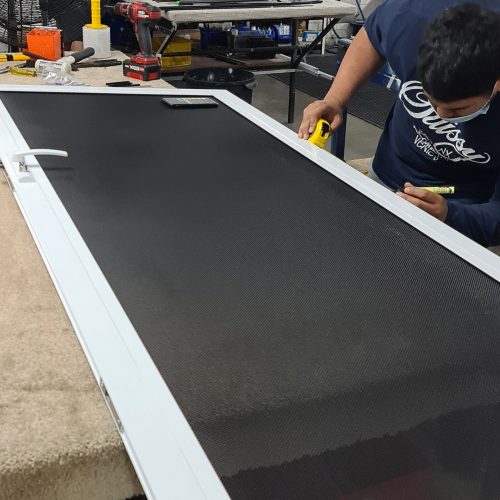
Should you change locks when buying a house? To keep it brief, changing locks is crucial when moving into your newly purchased house to help maximise your home security. You might’ve already googled “how to improve front door security” but realised you have a lot of other tasks you need to complete with the move-in process.
This might overwhelm you, but keeping the same key as the previous owners can be easily avoided with a call to a professional locksmith. This guide aims to explain the difference between rekeying and changing locks and the advantages and disadvantages of each method.
What is rekeying?
Rekeying is an option for those who wish to retain their existing locks but have the door lock modified to work with a new key. This route is often cheaper than getting a new lock and can save time. By rekeying your locks, you prevent any previous homeowner or real estate agent from being able to enter the house once it is in your possession.
What are some advantages to rekeying?
There are several advantages to rekeying locks on the doors of your new house:
- Fresh security: By rekeying your old locks, you immediately improve your home security as no one other than you will have the necessary keys to unlock your house.
- Cost-effective: Rekeying instead of changing your locks entirely is typically much cheaper, giving new homeowners on a budget breathing room when upgrading their home security.
- Streamline your home security: By rekeying your locks, you can rekey all of them to a single key type, allowing you to have one master key that can open all your doors.
- Efficient installation: Rekeying services typically rekey your lock in under 20 minutes, making it much more efficient than replacing a lock.
What are some disadvantages to rekeying?
There can be some disadvantages to rekeying, which may make you consider the lock change route instead:
- Level of security: While you can rekey your locks, the existing lock’s actual security level does not change; opting for a lock change can enhance your security.
- Does not resolve a faulty lock: Rekeying locks relies on the existing lock still operating; rekeying is not the right option if the lock is defective. This is when you should consider a lock change.
- It does not work with smart locks: Rekeying is redundant if you have a smart lock or digital door locks, as these lock mechanisms do not use physical keys.

When should you rekey rather than change locks?
Rekeying is the right choice for you if you’re looking for an immediate fix to your current security. It’s cost-effective and time-efficient, making it perfect for those who have just moved into a new home. It is also a practical solution if someone has lost their house key, allowing them to secure their house and have peace of mind.
What is the process of changing your locks?
Homeowners/Business owners typically change their entire lock when they’re looking to overhaul their security system. This involves a professional locksmith removing the existing locks from a building and replacing them with the new desired locks. This can include replacing it with a key lock or even upgrading to a smart lock or keyless locks for those looking for enhanced security.

What are some advantages to changing your locks?
There are numerous reasons for changing your locks, including:
- Improved security: Overhauling your locks allows you to enhance your lock system’s security level. This could include adding a deadlock or upgrading to a keyless system, making it much more difficult for break-ins.
- Replacement of faulty locks: By replacing your lock entirely, you can resolve the issue of an existing faulty entrance door lock. By having a defective lock, you are more prone to break-ins.
- Aesthetic upgrade: You may notice that the existing locks on doors at your new home don’t necessarily match the house’s aesthetics. By replacing your locks, you can upgrade your home security and have them fit with the house’s aesthetics.
What are some disadvantages to changing your locks?
There can be some downsides to changing your locks, which may lead you to rekeying instead including:
- Time constraint: Replacing your locks entirely can often take time due to removing and installing the new lock. This could be a reason to rekey instead.
- Budget concerns: Replacing your locks is more expensive than just rekeying your existing locks.
- Damage to door: While rare, replacing the look of a door can damage the door itself if installed poorly. This can lead people to rekey, especially if the existing door is more antique.
Why should you change locks when buying a house rather than rekey?
The main reason for changing locks rather than rekeying is to upgrade door security. Giving homeowners access to better protection to keep their property safe. It also allows homeowners to consider upgrading their existing locks with new ones that match their house’s aesthetics.

Why should you choose Central Screens & Locks?
With over 30 years of experience, our team can assist you with lock replacement or rekeying for your new household. We promise a seamless process that takes as little of your time as possible, all at affordable pricing.
To request a quote for your security upgrade, contact us today!



